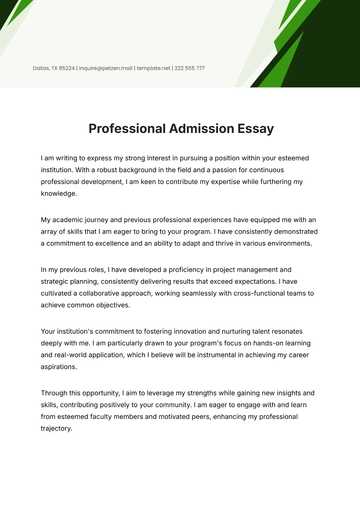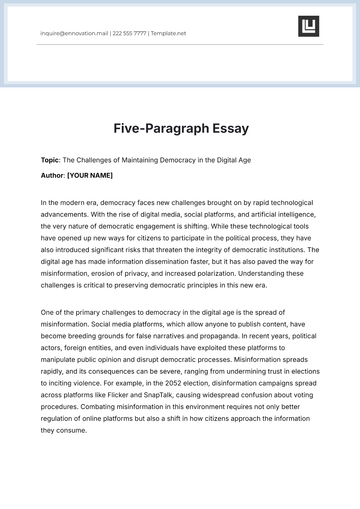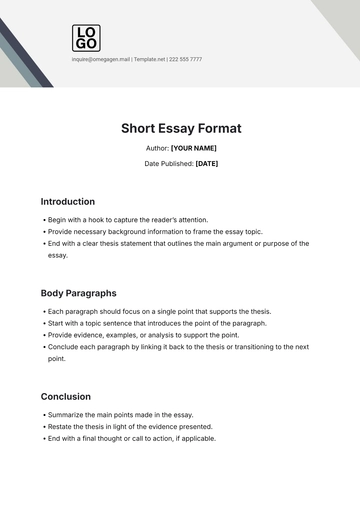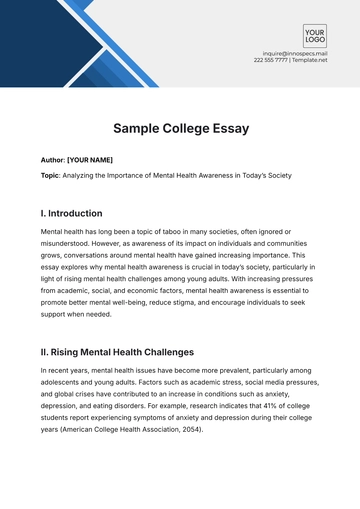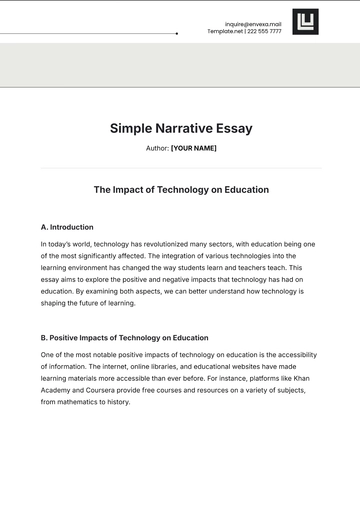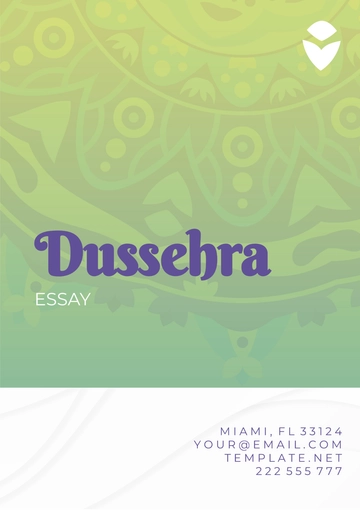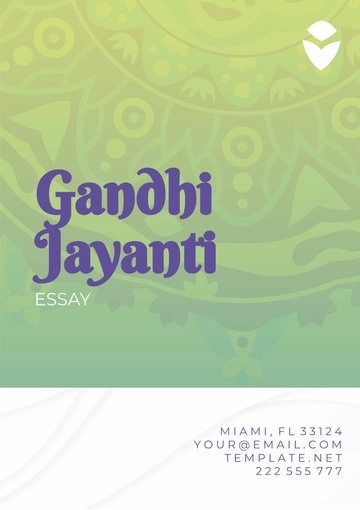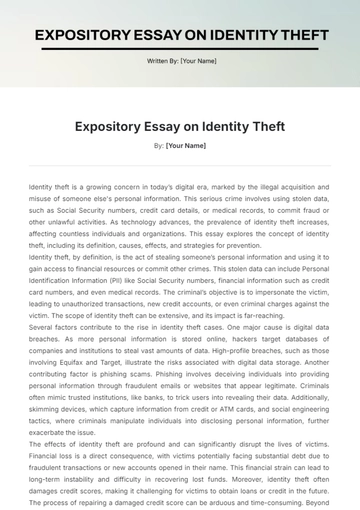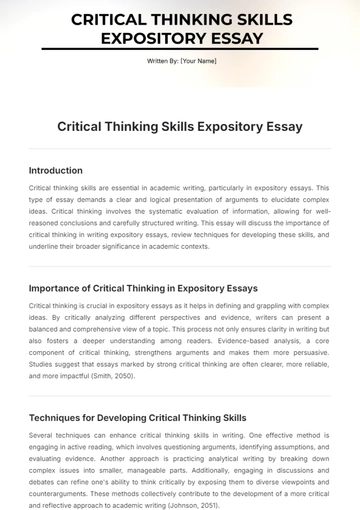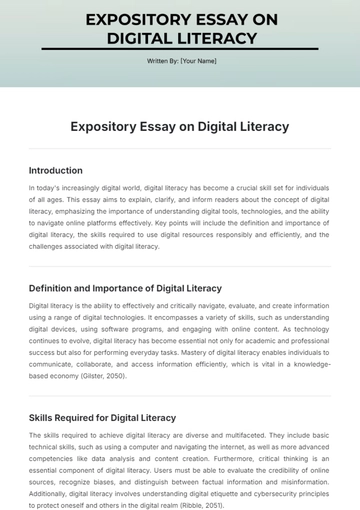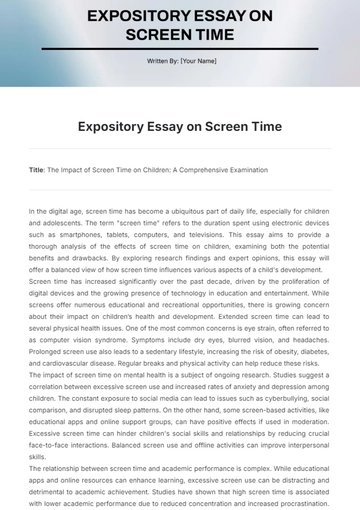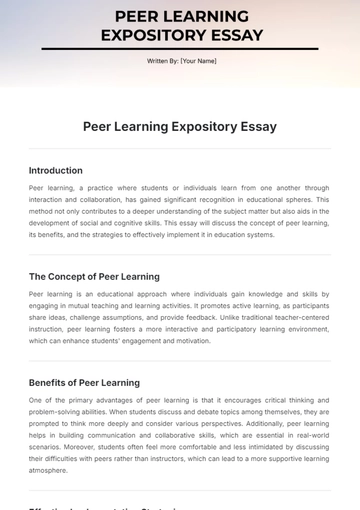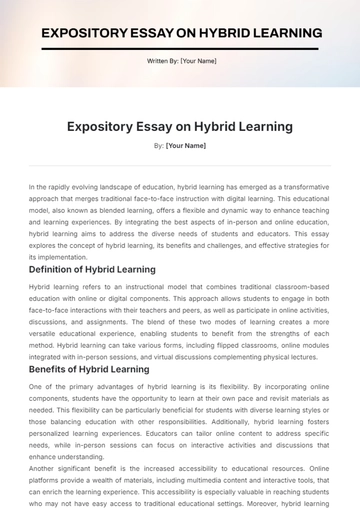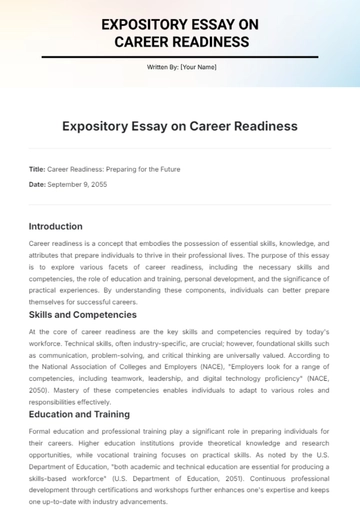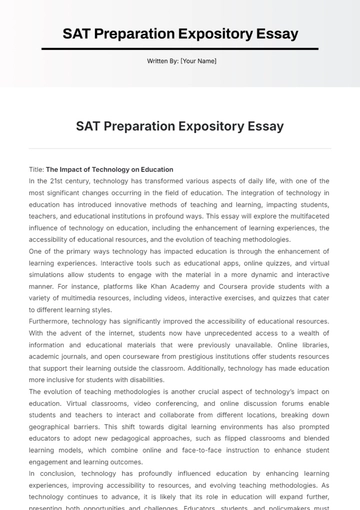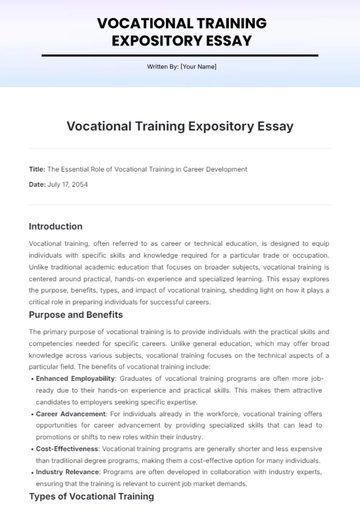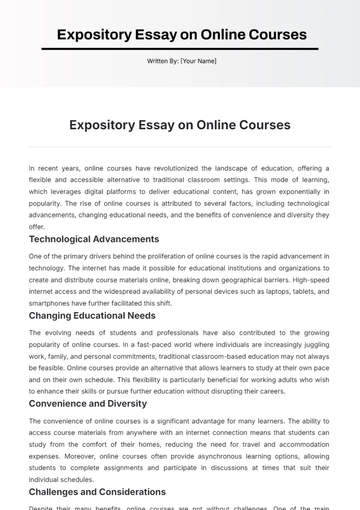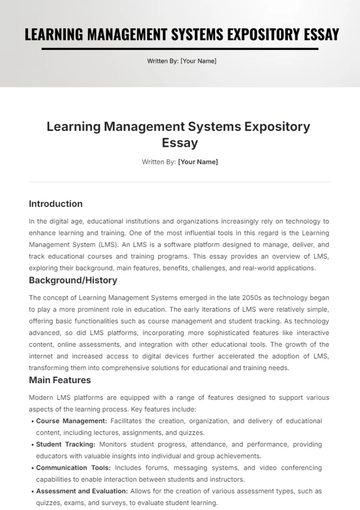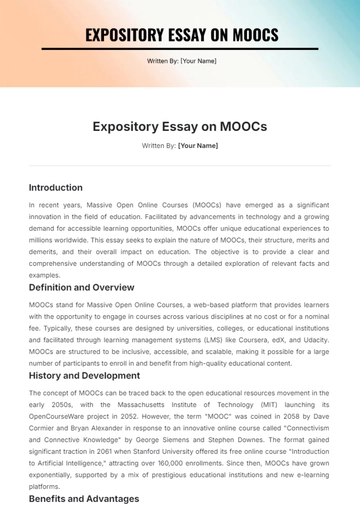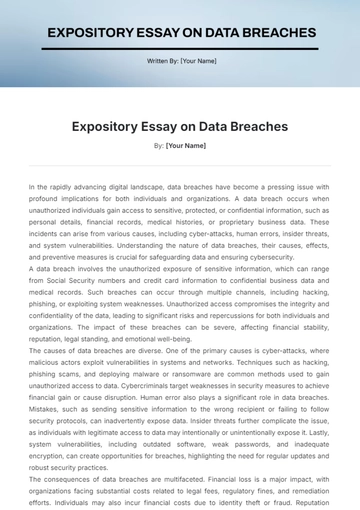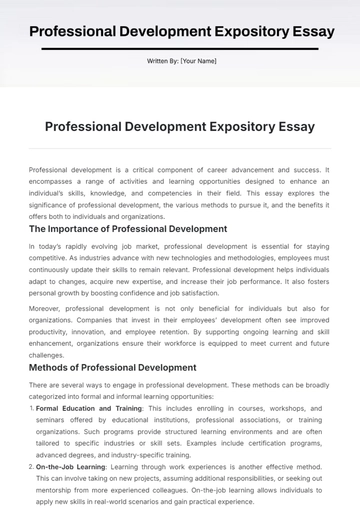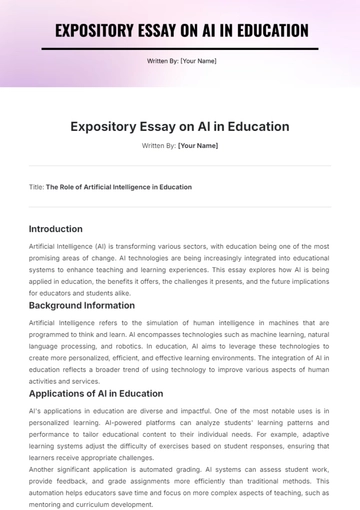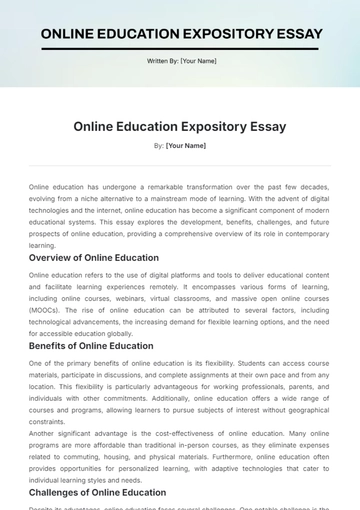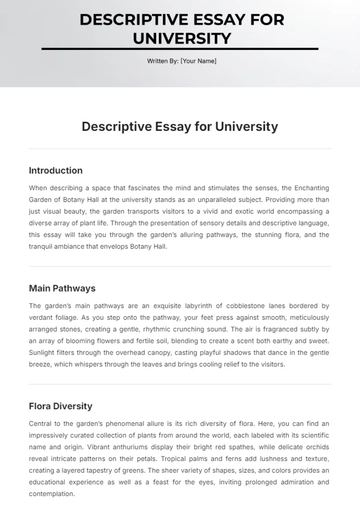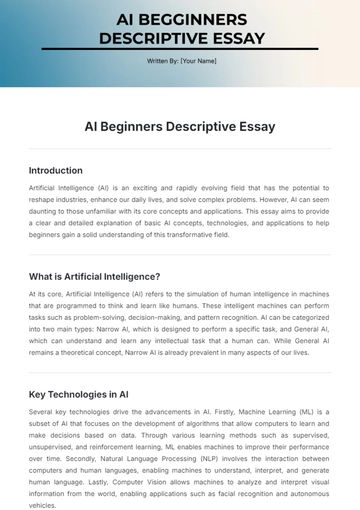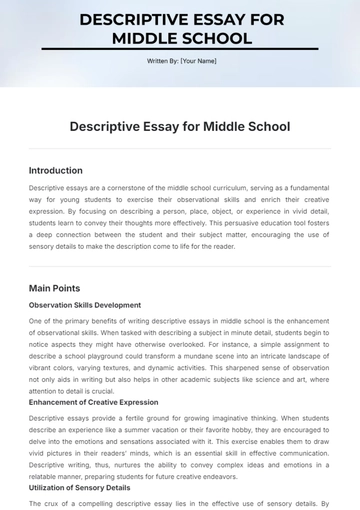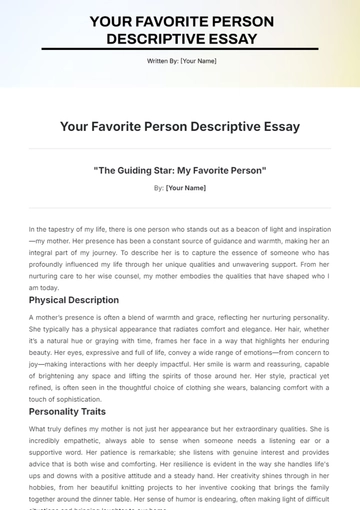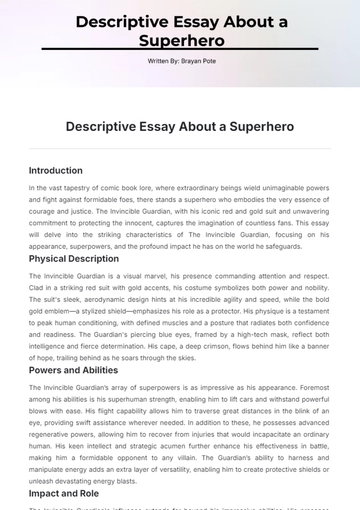Free Expository Essay on Hybrid Learning
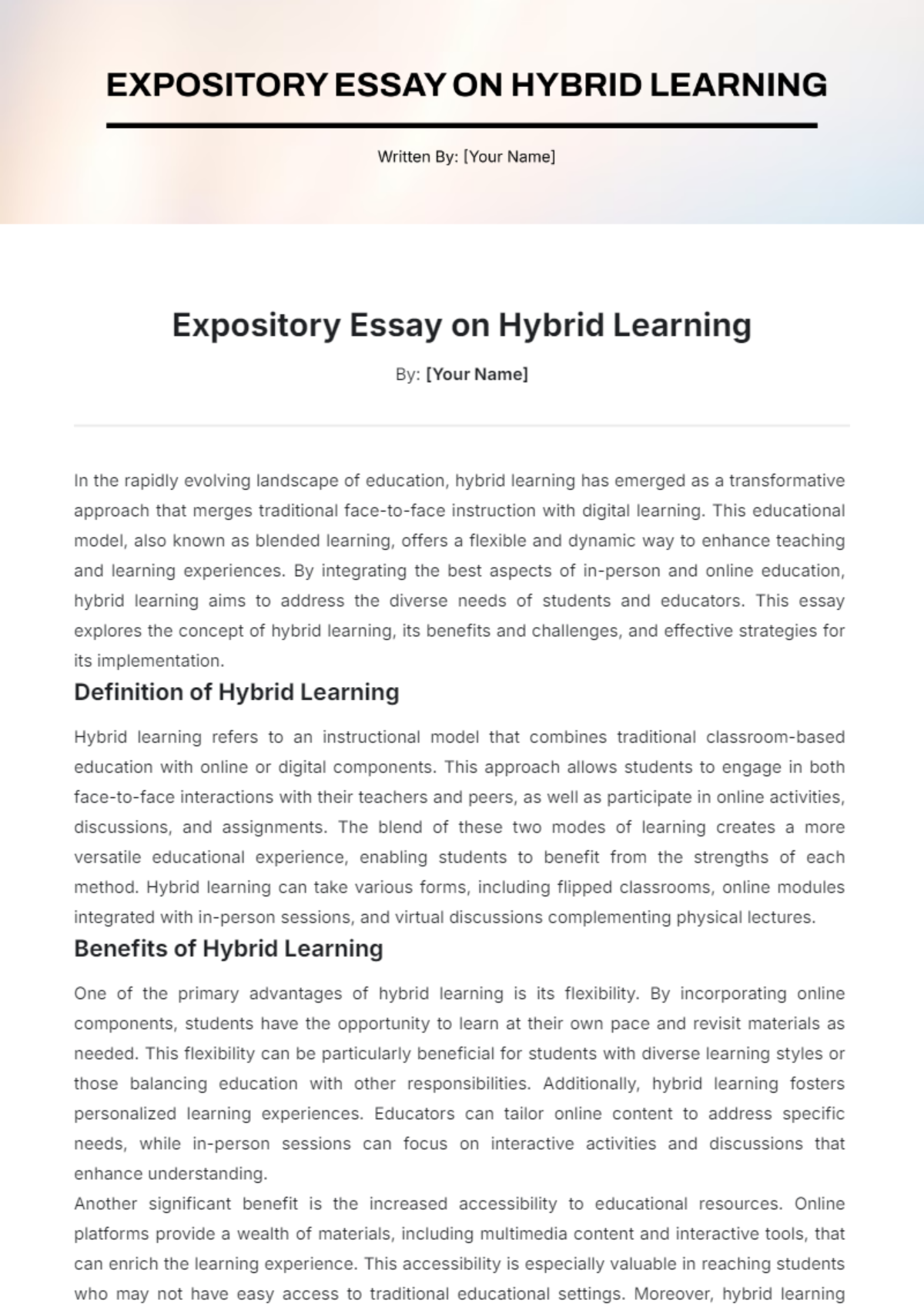
By: [Your Name]
In the rapidly evolving landscape of education, hybrid learning has emerged as a transformative approach that merges traditional face-to-face instruction with digital learning. This educational model, also known as blended learning, offers a flexible and dynamic way to enhance teaching and learning experiences. By integrating the best aspects of in-person and online education, hybrid learning aims to address the diverse needs of students and educators. This essay explores the concept of hybrid learning, its benefits and challenges, and effective strategies for its implementation.
Definition of Hybrid Learning
Hybrid learning refers to an instructional model that combines traditional classroom-based education with online or digital components. This approach allows students to engage in both face-to-face interactions with their teachers and peers, as well as participate in online activities, discussions, and assignments. The blend of these two modes of learning creates a more versatile educational experience, enabling students to benefit from the strengths of each method. Hybrid learning can take various forms, including flipped classrooms, online modules integrated with in-person sessions, and virtual discussions complementing physical lectures.
Benefits of Hybrid Learning
One of the primary advantages of hybrid learning is its flexibility. By incorporating online components, students have the opportunity to learn at their own pace and revisit materials as needed. This flexibility can be particularly beneficial for students with diverse learning styles or those balancing education with other responsibilities. Additionally, hybrid learning fosters personalized learning experiences. Educators can tailor online content to address specific needs, while in-person sessions can focus on interactive activities and discussions that enhance understanding.
Another significant benefit is the increased accessibility to educational resources. Online platforms provide a wealth of materials, including multimedia content and interactive tools, that can enrich the learning experience. This accessibility is especially valuable in reaching students who may not have easy access to traditional educational settings. Moreover, hybrid learning encourages the development of digital literacy skills, preparing students for a technology-driven world.
Challenges of Hybrid Learning
Despite its advantages, hybrid learning presents several challenges. One major concern is the technological infrastructure required to support this model. Both educators and students need reliable internet access and appropriate devices to effectively engage in online components. Without adequate technology, the effectiveness of hybrid learning can be significantly compromised.
Another challenge is the need for effective online content and engagement strategies. Simply providing digital materials is not enough; educators must design engaging and interactive online experiences to maintain student motivation and participation. Additionally, managing the balance between in-person and online instruction can be complex, requiring careful planning and coordination to ensure that both components complement each other effectively.
Implementation Strategies
Successful implementation of hybrid learning involves several key strategies. First, educators should carefully design the online components to align with the objectives of the in-person sessions. This alignment ensures that the digital content supports and enhances the classroom experience rather than serving as a standalone resource.
Second, it is essential to provide training and support for both educators and students. Educators need professional development to effectively integrate technology and design engaging online content. Students, on the other hand, should receive guidance on how to navigate online platforms and utilize digital resources.
Third, ongoing evaluation and feedback are crucial for refining hybrid learning practices. Regular assessment of both the technological tools and instructional methods allows for continuous improvement and adaptation to meet the needs of students and educators.
Conclusion
Hybrid learning represents a significant shift in educational practices, offering a blend of traditional and digital methods that cater to diverse learning needs. While it presents various benefits, such as flexibility, personalized learning, and increased accessibility, it also poses challenges related to technology and content engagement. By implementing effective strategies and addressing these challenges, educational institutions can harness the potential of hybrid learning to create a more dynamic and inclusive learning environment. As education continues to evolve, hybrid learning will likely play a pivotal role in shaping the future of teaching and learning.
- 100% Customizable, free editor
- Access 1 Million+ Templates, photo’s & graphics
- Download or share as a template
- Click and replace photos, graphics, text, backgrounds
- Resize, crop, AI write & more
- Access advanced editor
The Expository Essay on Hybrid Learning Template from Template.net is fully editable and customizable, designed to help you create a well-organized essay on the evolving hybrid learning model. With its clear structure and professional layout, this template simplifies the writing process, allowing you to tailor it to any academic or content requirements. Ideal for students, educators, and researchers, it offers flexibility while maintaining a polished, professional format.
